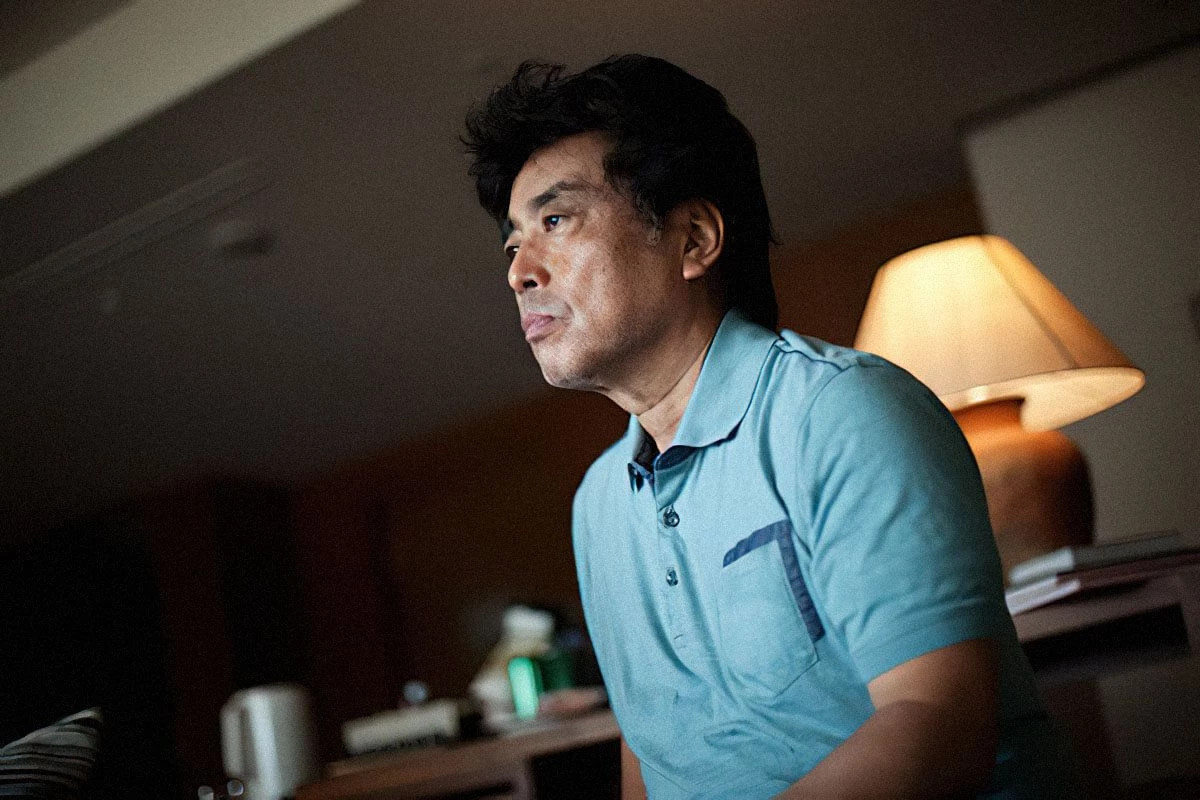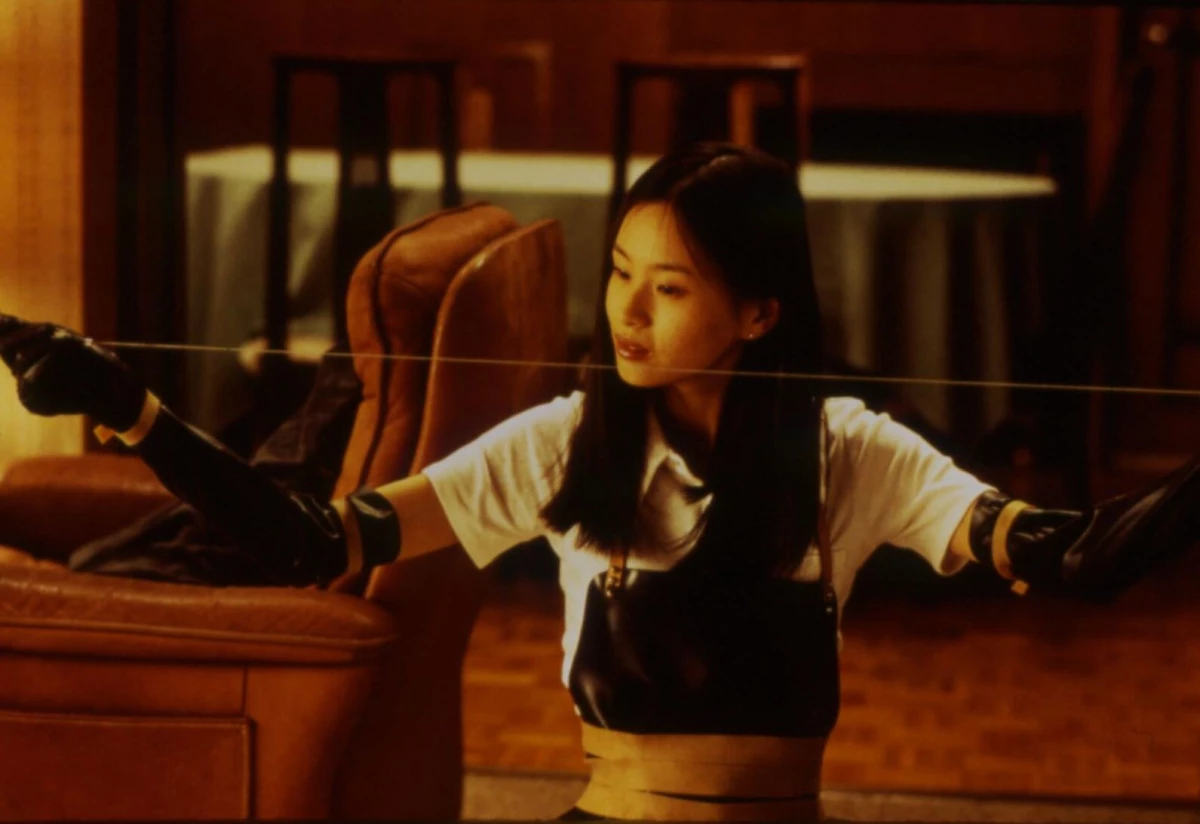He criticizes power, argue with economists and reads lectures to the highest officials. We tell about Ryu Murakami - perhaps the most shuffling Japanese writer, who makes his heroes of sex workers and drug addicts, losers and outsiders.
"All shades of blue"The release of the debut novel Ryu Murakami in 1976 became a notable event. Some critics called "all shades of the blue" forerunner of new literature, while others reproached the book in an unnecessary outdoor. Its heroes became young people from the Japanese town of the early 1970s. Recently released from school, they are hiding from the future and adults, experimenting with sex and drugs. The novel has no slender plot - this is a sequence of fragments of life similar to private photos.
Thanks to this, the writer received the most prestigious Japanese Ryunca Akutagava Award. Murakami became the youngest owner, at that time he was only 24 years old. The book "All Shades of Blue" predicted to similar debuts of the leaders of countercultural prose in the West - works of Britte Ethon Ellis, Douglas Copeland and Irvina Welsh were also devoted to confused young people, which sees no place in the world.
"All shades of blue" also show well the essence of the prose Ryu - he writes about Frika, outsider and marginal, and his manner of writing looks like a cold and impartial film. It seems to be indifferent to her, to shoot: a scene of bisexual orgy, a narcotic trip or rain outside the window. Therefore, "all shades of blue" became not only the literary debut of Murakami. At the age of 26, he became a director's debutant and put the same film on the novel.
"Miso soup""Call me just Kendji," the Hero of the Roman, imitating Izmail from Mobi Dick Melville. Kendji works by a guide, accompanies tourists to Kabuki-Teo - the Tokyo quarter of red lamps. Finds entertainment clients, negotiates with sex workers and solves unforeseen questions. It uses Frank, a huge and loud American tourist. Ahead of their three days of immersion in the nightlife of Tokyo, but the guest from the USA scares the guide from the very beginning. It seems that the American is associated with the terrible news, which they write in newspapers - throughout the city the corpses of schoolgirls are found.
In the homeland "MISO-Soup" received another prestigious Award "Yamiuri", and in the West became the most famous work of Murakami. His novels often occupy places in the lists of bestsellers, although far from those mainstream literature. So it turns out because in the books Murakami there is not only cruelty, violence and fear. In the case of the "Misho-soup", these are reflections on the culture of a big city and people who live in it. In the interruptions between clubs and bars, Kenji is distracted by politics and the economy in trying to understand how the metropolis works.
"Misho-soup" looks like a self-disclosure session, where Kenji acts an ironic altern of the author. He keeps the reader in Tokyo as a large neon attraction, complete sex and violence. Roman himself resembles the films of Quentin Tarantino: a rapid adventure, full grotesque and virtual blood. But Murakami is more serious than the author of the "criminal hevival" - despite the grotesque and black humor, "Misho-soup" was written not to a cheerful postmodernist, but rather a moralist. Because he proposes to understand all the heroes: Keji himself, Frank, sex workers and their customers. He reflects on what he led them to such a lifetime, but does not condemn them for their choice.
"Ecstasy", "Melancholy", "Tanatos"In one interview, Murakami said: "All stories are created in the plot, where the main character falls into the hole, and then trying to get out of it or dies in it." And the main trilogy of the writer is devoted to such a fall. Each book specializes in certain emotions and states - "Ecstasy" is responsible for pleasure, Apathy is given "Melancholia", death remains "Tanatosu". All three novels are united by common heroes.

The focus of the cycle is a complex relationship between the Caiko sex worker, the film crews of the Yazaki and the Reiko actress. The first novel "Ecstas" is dedicated to the story of Keiko, who torments the storyteller and turns it into a masochist. In "Melancholy" we are talking about how Yazaki gradually seduces a naive journalist. And in the final "Tanatos", the narrative is conducted on behalf of Reiko, which reveals the secrets of relations of all three characters.
The trilogy looks like a tangled labyrinth, monologues of the heroes looped in attempts to understand themselves and the subjects of their own passion. With the help of their thoughts, Murakami makes it possible to speak out to those who have become an outcast in Japanese society. Related thoughts about sex and violence turn into a kind of therapy not only for specific people or one country, but also a whole world, which is secretly concerned about the same problems.
"Parasites"In Japan, Murakami is known as social critic. His novels were discussed in parliament, he arranged a debate with economists and lectured by the highest ranks of Japan. He wrote a parody book, where he offered a 122 option where to spend money, which the government has invested in the ruined banks. And published a reference book for adolescents, where more than 500 professions described with the pros and minuses of each of them: from a doctor and sex workers to an auto mechanic and a soldier. And most of this criticism is designed to pay attention to the problems of young people and the crisis in generations. He collected his observations and fears to the Hero of the Roman "parasites" by Wihara.
Wihara does not go out and lives at the expense of parents. He suffers from a mysterious mental disorder, because of which he constantly pursues outbreaks of aggression. The only joy in his life is to watch TV and admire the leading Josiko Sakagami, because his mind-blurred mind is no longer capable of. So continues until Wihara receives a laptop as a gift with Internet access. The first thing he finds the site of his beloved lead, where he learns that his illness is a print of favorites. And then he first comes out of the house.
Even among the characters, Murakam Wihara stands out for its nuisance - his outbreaks of cruelty give him pleasure. If the heroes of other novels with Murakami gave themselves a report in what they do, then the Wihara do not even have hints on empathy. "Parasites" were an attempt to Murakami to understand the terrorist attack at the AUs Sinico sect (the organization prohibited in the Russian Federation), where people entered into Wiharu. How it happened that they had no place to go and nowhere to look for hope, except in the sect?
"Topaz"When Murakami ask about the reasons for attention to the life of rogue, he recalls a letter that once received. A high school student wrote him about a quarrel with his parents, shooting from home and solving to end. Waiting for the bus, she read one of his books. And I realized that many feel the same as she is that there are other losers. For such readers Murakami and writes similar stories.
Among people whose voices Murakami suggests to hear, special attention is paid to women engaged in prostitution. Separately, they are dedicated to the collection of the novel "Topaz". In these stories, there are no more related to each other, sex workers are described: they are full of indifference to themselves, to customers and to the chosen life. Combines the characters of the novel only loneliness. Lonely women themselves and those who buy their bodies overnight. No one in the end receives either love nor respect for themselves.

Novel "Topaz", which gave the name of the collection, was based on the film "Tokyo Decadence", which places crosses the borders of pornography and represents the naturalistic scenes of BDSM-sex. But a more provocative film "Film", delivered by the story of the same name, which is included in the collection. In the "Film" Widovers Sighara Aoyama decides to re-marry. To do this, he suits fake listening and invites girls who want to play in the film. But no film is not really not, and the samples are needed to select a new wife, which outrages the main character. Thus, the figure of a woman, which is exhibited as a product gets a new embodiment. If the girls are accustomed to their humiliated position in the "topaz", the heroine of "film processing", on the contrary, will take pictures for bullying and violence in childhood, for leaking and for injury, from which it is impossible to heal.
